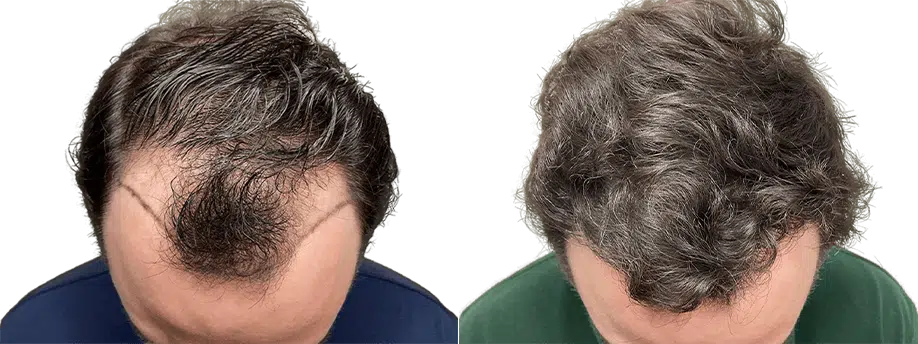How To Preserve Existing Non-Transplanted Hair After A Transplant?
A hair transplant is designed to permanently restore hair to the scalp in the areas affected by hair loss or thinning hair, but it is not intended to prevent the loss of the patient’s naturally occurring, non-transplanted hair. Patients looking to preserve their existing, non-transplanted hair following a hair transplant have quite a few options available to them, including over-the-counter and prescription medications as well as natural solutions involving dietary changes or nutritional supplementation. While these options are all effective in preserving non-transplanted hair after the completion of a hair transplant procedure, it is always advisable for the patient to clear any course of action with their hair transplant doctor before doing so.
Due to the clinically proven efficacy of both Rogaine and Propecia in preventing further hair loss, patients seeking to preserve existing, non-transplanted hair often turn to these medications after the completion of their hair transplant procedure. Rogaine is available as an over-the-counter medication, but Propecia requires a prescription. While both options are considered effective on an individual basis, there is ample evidence suggesting that a combination of the two medications generates better results than either one generates on its own.
In addition to the use of topical and oral medications that help recover the loss of existing hair, patients might wish to consider nutritional supplementation or dietary changes. Just as there is enough evidence to suggest specific behaviors — tobacco use, for example — contribute to accelerated hair loss, so too is it the case that healthy behaviors can contribute to the prevention or delay of additional hair loss. This is part of the reason it is so critical for patients to engage in a thorough discussion with their doctor in order to determine what additional steps can be taken to achieve the best possible result while undergoing a hair transplant procedure.
While it is preferable to make changes to one’s diet that meet specific nutritional goals, the use of supplements is also a sound option. For fuller, healthier hair that is also more resistant to loss, patients should focus on foods that deliver an appropriate amount of iron, protein, magnesium, calcium, zinc, and vitamin B — with a particular emphasis on vitamin B6. Through positive dietary changes and nutritional supplementation, patients can strengthen not only their naturally occurring hair follicles, but also the follicles transplanted as part of the hair transplant procedure.

